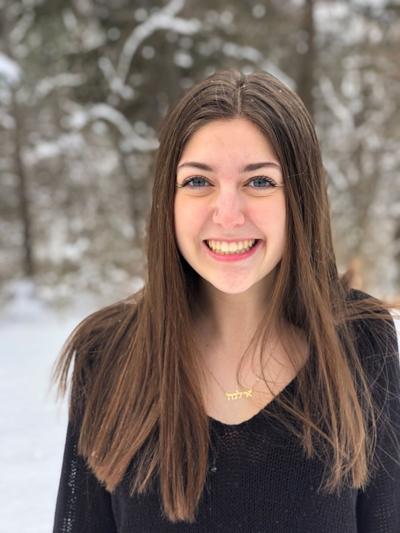The 11 days I spent in Natz, Italy, on a BBYO cultural exchange titled ZWST Winter Machane, included some of the most incredible, humbling and eye-opening experiences of my life.
ZWST is BBYO’s partner movement in Germany.
Before embarking on the journey, I had no idea what to expect. The trip was described as a “winter retreat in the Italian Alps.” From the immediate culture shock of eating cereal that wasn’t coated in sugar, to hearing German and Ukrainian everywhere, I found myself experiencing things that were both exciting and pushed me out of my comfort zone.
Being an American in BBYO, I often forget to think about the language gap that exists between myself and teens from other countries who join our international programs. When I departed for Italy, I was naive to expect everything would be translated into English. Coming from someone who loves to talk and connect with others, it was difficult to get used to not understanding what was happening at any given moment.
The stress of being a foreigner in a new country disappeared when we reached the top of the Italian mountain our first day there. With my new friends from my kvutzah (the groups we were split into), I engaged in the most stimulating conversations about politics, Judaism and cultural differences. Through programs similar to those we do in BBYO, where we learn about holidays and celebrate our culture, to programs where we step out of our comfort zones and just have fun with new friends, it was incredible to be a part of the close-knit community that was built at “Machane Joter.”
Similar to how the conventions I attend in the United States often have themes, this winter camp was called “Joter,” which means “more.” Through programs and unique experiences, we learned how we can do more to stand up against anti-Semitism, learn more about our Jewish roots and have a greater impact on each other and the communities around us.
My favorite evening program was near the end of our trip when we were split into groups and were able to talk to different staff members and hear their experiences in dealing with anti-Semitism. After we heard shocking stories of anti-Semitic co-workers and childhood friends changing perspectives, we gathered in a large circle to talk about our history.
After the Holocaust, Jews in Germany have primarily been recognized as victims. The point of the program and discussion was to talk about how to stop accepting the role of the victim and reclaim our Jewish history and pride. One of the ways they actively go about reclaiming Judaism in Germany is by practicing very traditional services every morning, on Shabbat and reciting the Birkat Hamazon, or Grace, after meals. Jewish teens across Germany look forward to their summer and winter machanot to fully embrace being Jewish and feel their loving and supportive community.
During the experience, I was shocked at how little it resembled the picture I painted in my mind. However, I could not possibly have imagined a more meaningful, enjoyable or impactful way to spend my winter break. I learned to value the vibrant Jewish community I have at home and remember we have both a responsibility to embrace our culture and a wonderful gift that we can do so freely. I couldn’t wait to reconnect with my new best friends across Germany at BBYO’s international convention in Dallas in February and in the future.
Elana Rubanenko of Pepper Pike is a junior at Orange High School in Pepper Pike.
Publisher’s Note: Elana Rubanenko wrote and submitted her story prior to the COVID-19 pandemic.







